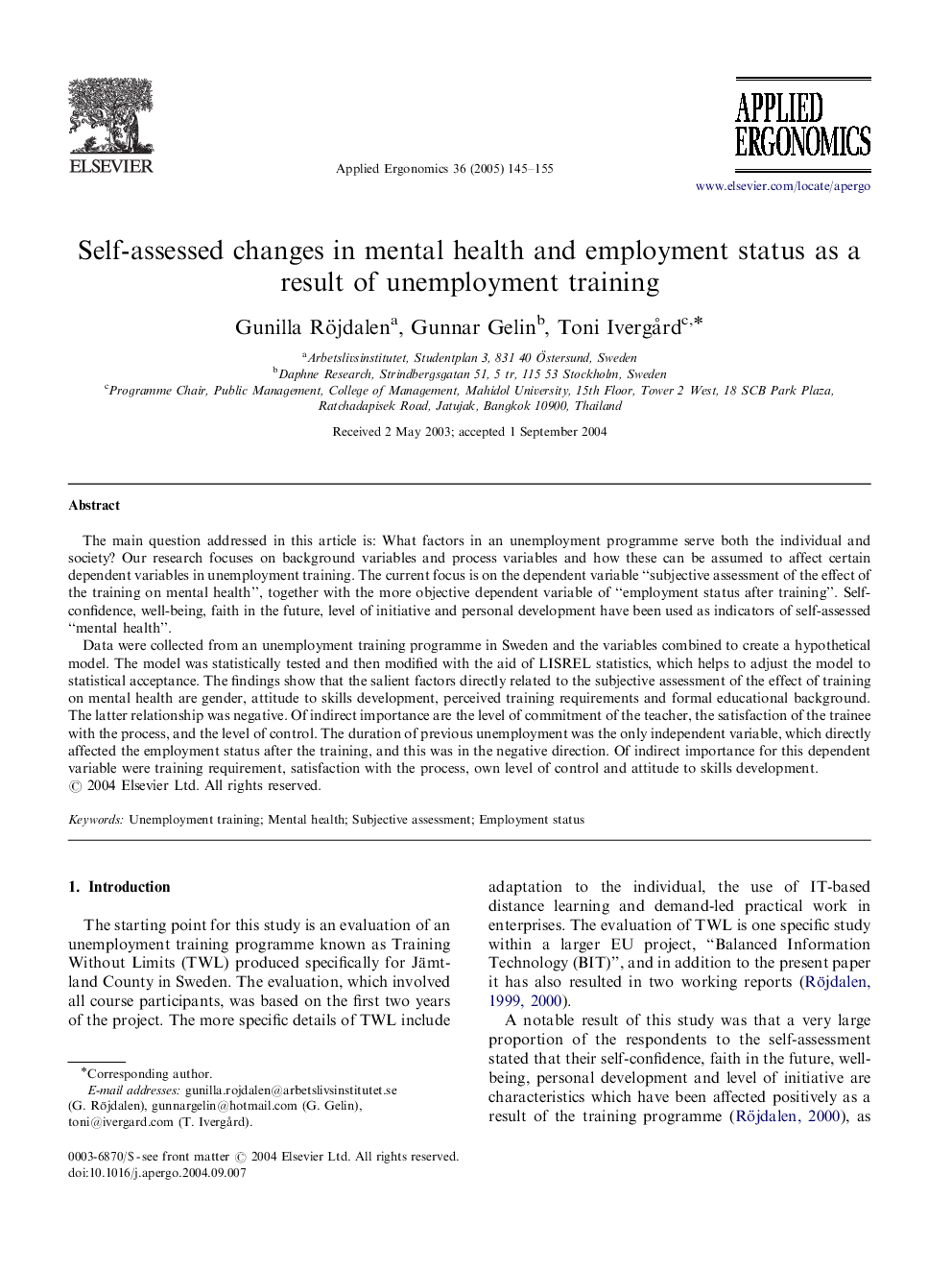| Article ID | Journal | Published Year | Pages | File Type |
|---|---|---|---|---|
| 10365959 | Applied Ergonomics | 2005 | 11 Pages |
Abstract
Data were collected from an unemployment training programme in Sweden and the variables combined to create a hypothetical model. The model was statistically tested and then modified with the aid of LISREL statistics, which helps to adjust the model to statistical acceptance. The findings show that the salient factors directly related to the subjective assessment of the effect of training on mental health are gender, attitude to skills development, perceived training requirements and formal educational background. The latter relationship was negative. Of indirect importance are the level of commitment of the teacher, the satisfaction of the trainee with the process, and the level of control. The duration of previous unemployment was the only independent variable, which directly affected the employment status after the training, and this was in the negative direction. Of indirect importance for this dependent variable were training requirement, satisfaction with the process, own level of control and attitude to skills development.
Related Topics
Physical Sciences and Engineering
Computer Science
Human-Computer Interaction
Authors
Gunilla Röjdalen, Gunnar Gelin, Toni IvergÃ¥rd,
